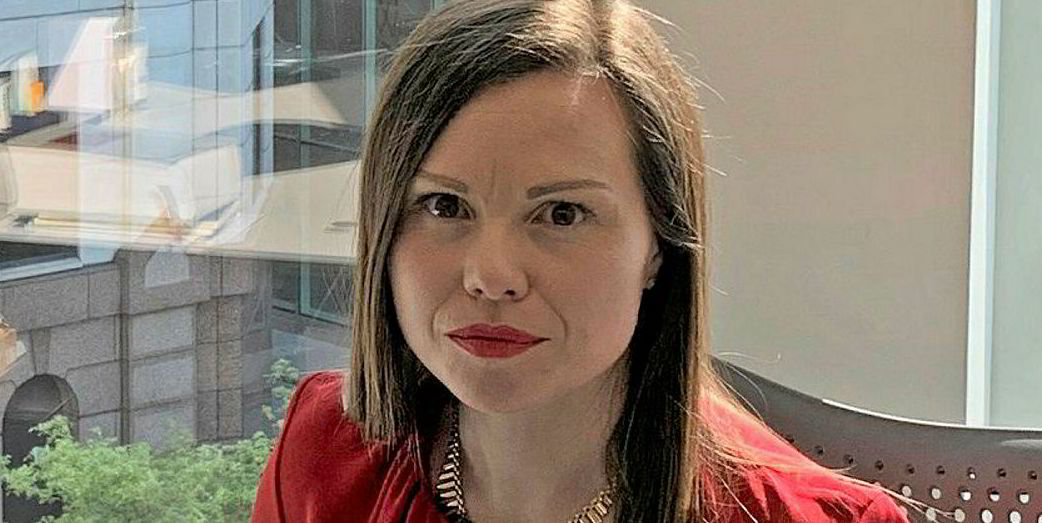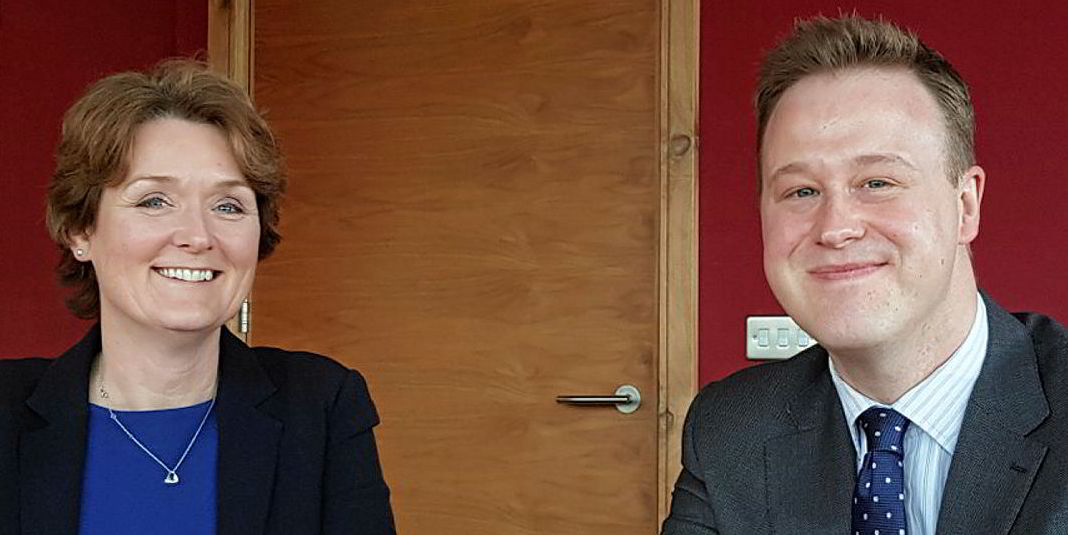The new generation of partners at shipping law firms may never have known the industry’s pre-2008 boom market.
Most began their legal careers amid the financial crisis and cut their teeth in a decade in which most shipping sectors have experienced historic levels of stress.

This story is one of 30 profiles in a special edition of our TW+ magazine.
To celebrate TradeWinds’ 30th birthday, TW+ is not looking back, but forward, with a Thirty@30 focus on the important people and issues extending out to 2050.
TradeWinds reporters have profiled 30 personalities who have shown traits that we think mean they will influence the directions the shipping industry takes, maybe not quite as far forward as the next 30 years, but certainly over the next decade.
Read all the profiles when TW+ is published on 16 October.
Eleanor Midwinter, a specialist counsel in the shipping and offshore group at Wikborg Rein’s London office, is representative of this new generation of maritime lawyers schooled in the disputes of that difficult past and looking to solve future problems.
Alongside Shaan Burton from Kennedys, Thor Maalouf from Reed Smith, Michael Ritter from HFW and Will Trustram from Clyde & Co, Midwinter was named one of shipping’s rising stars in last year’s highly regarded Legal 500 rankings.
“It may sound counter-intuitive, but I count myself fortunate to have started my legal career as the 2008 credit crunch hit,” Midwinter tells TW+.
She spent several years cancelling, restructuring and litigating shipbuilding, chartering and commodities contracts alongside in-house legal teams at Rickmers, BP and Citi, as well as working with clients to handle new European Union rules on trading, packaging and shipping chemicals and biofuels.
“When it comes to managing and enforcing contracts in a crisis, it was the ultimate crash course,” she says.
If the fallout of the 2008 crisis taught her anything, it was to keep a close eye on counterparty risks, change-management and enforcement prospects.
Today Midwinter is working on contracts for alternative marine fuels such as LNG and biofuel; advising on sanctions issues under long-term chartering arrangements; and handling a dispute concerning reliquefaction facilities.
She sees these instructions as part of the bigger picture — of finding ways to manage shipping’s transition to alternative fuels and becoming profitable in a more sustainable way.
There has to be a tipping point where technology, profitability and sustainability are co-dependent
Eleanor Midwinter
“I’m really interested in solutions that make me proud to be in the industry I work in and it’s exciting to help the commercial and operations teams put those into action.
“Each generation is demanding more in terms of transparency, diversity and sustainability in the supply chain — and rightly so.
“The difference now is that technology has allowed wider access to data, better solutions, as well as more direct lobbying through social media.”
The effect, she says, is driving changes in government policy and the supply chain.
“We see this in the latest environmental targets and in consumer demand for ethical products and services. There has to be a tipping point where technology, profitability and sustainability are co-dependent.”
But regulation has to be effective and commercially manageable. Midwinter is seeing early movers expecting to command a premium for providing greener shipping solutions.
“When it comes to big changes affecting the whole industry, collaboration needs to be practical, precise and what’s best to protect the future functioning of the industry as a whole — not only what’s best for one company or contract today”, she adds.
The challenges posed by this year’s IMO 2020 switch to lower-sulphur fuel were a “teething stage”, a useful experience-building phase for the next targets on greenhouse emissions, she says.
“Industry bodies funded by commercial entities can help by finding ways for companies to contract with each other to manage regulatory risk.
“And the corporations can help by resisting the urge to score points on one another and instead come together to effect change — and kick the habit of stirring up commercial disputes that might set back progress.”
Her advice is simple: “We need to make sure that shipping is fit for purpose forever — and the way to do that is to have an attitude and framework for constructive change-management.”
It means finding ways to increase the flexibility of industry structures in ways that match the fast pace of development.
“The scale and pace of the ‘new’ is increasing. That means that we have to be more flexible in the way we think, deal, regulate and contract. But it also creates opportunities.
“In 10 years, we will all be astonished that we did not move faster.”






